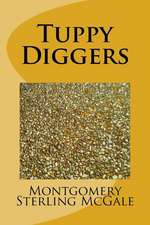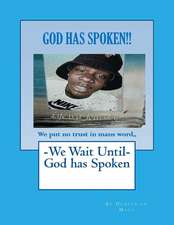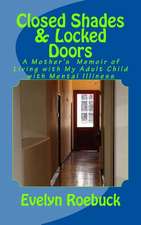Apocalypse, Darling: Machete
Autor Barrie Jean Borichen Limba Engleză Paperback – 30 ian 2018
From award-winning author Barrie Jean Borich comes Apocalypse, Darling, a narrative, lyric exploration of the clash between old and new. Set in the steel mill regions of Chicago and in Northwest Indiana, the story centers on Borich’s return to a decimated landscape for a misbegotten wedding in which her spouse’s father marries his high school sweetheart. The book is a lilting journey into an ill-fated moment, where families attempt to find communion in tense gathering spaces and across their most formative disappointments. Borich tells the story of the industrial heartland that produced the steel that made American cities, but also one of the most toxic environmental sites in the world.
As concise as a poem and as sweeping as an epic novel, Apocalypse, Darling explores the intersection of American traditional and self-invented social identities and the destruction and re-greening of industrial cityscapes. Borich asks: can toxic landscapes actually be remediated and can patriarchal fathers ever really be forgiven? In a political climate where Borich is forced to daily re-enter the toxic wastelands she thought she’d long left behind, Apocalypse, Darling is an urgent collision of broken spaces, dysfunctional affections, and the reach toward familial and environmental repair.
Preț: 126.43 lei
Nou
Puncte Express: 190
Preț estimativ în valută:
24.20€ • 25.17$ • 19.97£
24.20€ • 25.17$ • 19.97£
Carte tipărită la comandă
Livrare economică 11-17 aprilie
Preluare comenzi: 021 569.72.76
Specificații
ISBN-13: 9780814254622
ISBN-10: 0814254624
Pagini: 120
Dimensiuni: 140 x 216 x 10 mm
Greutate: 0.17 kg
Ediția:1
Editura: Ohio State University Press
Colecția Mad Creek Books
Seria Machete
ISBN-10: 0814254624
Pagini: 120
Dimensiuni: 140 x 216 x 10 mm
Greutate: 0.17 kg
Ediția:1
Editura: Ohio State University Press
Colecția Mad Creek Books
Seria Machete
Recenzii
“Lying down with Apocalypse, Darling reminds readers that lesbian books are a way of lying with women. Intimate. Important. Sensual. What happens when women lie with women? They read and write and tell stories that care for lesbians, for women, for the whole of creation.” —Lambda Literary
“Apocalypse, Darling is a wonderful addition to Barrie Jean Borich’s literary explorations of queer and Midwestern identities . . . with her exquisitely rendered, humane illuminations of the particulars of place and the multiplicities of family constellations.” —The Gay & Lesbian Review
“On one hand Barrie Jean Borich’s remarkable Apocalypse, Darling mucks up the neat divide between reclamation and ruin, laying waste to the old binaries. On another it’s a hilarious, playful, and deeply absorbing inquiry into what it might mean to be an American right now. This is timely, dazzling work. — Paul Lisicky, author of The Narrow Door: A Memoir of Friendship
“Few writers today can equal Barrie Jean Borich in channeling the unspoken languages of our culture, whether it’s a family wedding overseen by headless but eloquent plastic torsos, or the Gothic beauty of a landscape ‘capped by the granulated blue of a mill-punctured sky,’ or wedding guests like the author and her spouse, who remake themselves in the new cities of ‘the country of women’. This ‘narrative lyric’ uses its gorgeous lyricism to show us how, physically and psychically, every moment is a new country, each quietly burning with its own apocalypse.” —Susanne Paola Antonetta, author of Body Toxic and Make Me a Mother
“Apocalypse, Darling shows Barrie Jean Borich at her jazz-riffing, literary canon-busting best. Here, lustrous literary forms born of post-industrial wastelands are the grounds for seeing and being seen, remembering and reinventing. Borich’s apocalyptic love song is more bracing, more beautiful, and more real than current dystopias will ever allow: a queer ecology of mind.” —Mary Cappello, author of Life Breaks In: A Mood Almanack
“Barrie Jean Borich delivers a time-tripping, probing biographic memoir about love and the hard-to-love, dysfunctional families and the new American family, and the almost poetic parallels between toxic relationships and America’s repatriated industrial wastelands.” —Minneapolis Star Tribune
“It is important to note the beautiful complexity of the book as it not only intertwines present with past, but also illuminates intricate connections between people and the land. . . . Can we change? Can we revive what was once peaceful and beautiful?” —New Pages
Notă biografică
Barrie Jean Borich is the award-winning author of Body Geographic and My Lesbian Husband. She is an Associate Professor of creative writing and publishing at DePaul University in Chicago, where she edits Slag Glass City, a digital journal of the urban essay arts.
Extras
Wasteland Oasis
Indiana 2008
If we were to arrive at this wedding by helicopter here’s what we would see.
An expanding patch of unnatural green. Neon green. Denial-of-impending-annihilation green. An over-bright amoeba, surrounded by the stacks of Northwest Indiana. Windowless steel mills, smoke spume, ground that appears as if the skin has been scraped away, a rusty, gouged tableau, wasteland gray interrupted by the peacock blue painted exterior of U.S. Steel Gary Works—as if someone in charge had consulted with a home decorating guru. Shall we try blue, Darling? Costume-party, feather-boa blue? Blue to accent these badlands that would stretch all the way to forever, except for the khaki bumper of Lake Michigan.
This decimated plain, punctured by the green of the golf course, is where my father-in-law, age seventy-five, is about to wed his long-lost, newly found, pinkly smiling, high school sweetheart, in the presence of middle-aged children who would not exist if this father, and this mother, had married each other the first time they were in love.
Byway, Skyway
Illinois/Indiana 2008
Of course we don’t arrive by helicopter. Linnea and I fly from Minneapolis to Chicago, then drive the rest of the way to her father’s wedding.
The quickest way to get to the communities lining the Indiana Dunes from downtown Chicago is via the byway of the sky. The western entry to the Indiana Toll Road is an elevated highway built on a scaffolding that laces into the far Southeast Side, a steel filigree supporting the highway up and over the old steel workers’ city. Even knowing what’s ahead, the highway inclining under the wheels of the car as it passes through the toll gate, the signage making clear that this is the exit onto the SKYWAY, it’s still not immediately apparent that this is not just a road but a bridge breaking into open air, so then a shock, the way first the old East Side port and then downtown Gary open beneath us, a pictorial centerfold. Gary is a splay of old-century granite stitched together by the steel docks and bridge girders, contained by the jade release of Lake Michigan, cleaner now than when I was a girl, capped by the granulated blue of a mill-punctured sky.
Linnea is driving. I slap her on the shoulder as the Skyway rises over the centerfold. I hadn’t expected we’d motor into such familiar and unfamiliar cleaving. We are driving toward a gathering of her side of the family, but driving through the Old Country of mine.
When I was teenager I often ended up on the Skyway by accident, veering onto the wrong exit south from the Loop, usually late at night, my car full of friends, likely drunk or high, when the yellow streetlights cast a dingy pall over the toll bridge gates, suggesting the gateway into Hell or at least Purgatory. Once you enter the Skyway in south Chicago there are no exits until Hammond, Indiana, so those lit-up CHICAGO SKYWAY letters over the toll plaza caused my stomach to tighten. Where am I? Do my friends think I’m a bad driver?
How do I get off, out, home?
By comparison, on this June afternoon, the sky could not be a crisper blue. I could stay in this hanging moment forever, Linnea’s steady, square hands clutching the steering wheel, the windows rolled up so as not to muss my shoulder-length hair I’d so carefully flat-ironed in her sister’s bathroom, back on the shinier side of the city where we’d spent the night, my chest, overexposed in my low-cut sundress, goose-pimpling in the breeze of the air conditioning, the Skyway incline out and over, the spread of old avenues opening, hail forgotten city, full of grace.
I almost forget we have someplace to be.
Indiana 2008
If we were to arrive at this wedding by helicopter here’s what we would see.
An expanding patch of unnatural green. Neon green. Denial-of-impending-annihilation green. An over-bright amoeba, surrounded by the stacks of Northwest Indiana. Windowless steel mills, smoke spume, ground that appears as if the skin has been scraped away, a rusty, gouged tableau, wasteland gray interrupted by the peacock blue painted exterior of U.S. Steel Gary Works—as if someone in charge had consulted with a home decorating guru. Shall we try blue, Darling? Costume-party, feather-boa blue? Blue to accent these badlands that would stretch all the way to forever, except for the khaki bumper of Lake Michigan.
This decimated plain, punctured by the green of the golf course, is where my father-in-law, age seventy-five, is about to wed his long-lost, newly found, pinkly smiling, high school sweetheart, in the presence of middle-aged children who would not exist if this father, and this mother, had married each other the first time they were in love.
Byway, Skyway
Illinois/Indiana 2008
Of course we don’t arrive by helicopter. Linnea and I fly from Minneapolis to Chicago, then drive the rest of the way to her father’s wedding.
The quickest way to get to the communities lining the Indiana Dunes from downtown Chicago is via the byway of the sky. The western entry to the Indiana Toll Road is an elevated highway built on a scaffolding that laces into the far Southeast Side, a steel filigree supporting the highway up and over the old steel workers’ city. Even knowing what’s ahead, the highway inclining under the wheels of the car as it passes through the toll gate, the signage making clear that this is the exit onto the SKYWAY, it’s still not immediately apparent that this is not just a road but a bridge breaking into open air, so then a shock, the way first the old East Side port and then downtown Gary open beneath us, a pictorial centerfold. Gary is a splay of old-century granite stitched together by the steel docks and bridge girders, contained by the jade release of Lake Michigan, cleaner now than when I was a girl, capped by the granulated blue of a mill-punctured sky.
Linnea is driving. I slap her on the shoulder as the Skyway rises over the centerfold. I hadn’t expected we’d motor into such familiar and unfamiliar cleaving. We are driving toward a gathering of her side of the family, but driving through the Old Country of mine.
When I was teenager I often ended up on the Skyway by accident, veering onto the wrong exit south from the Loop, usually late at night, my car full of friends, likely drunk or high, when the yellow streetlights cast a dingy pall over the toll bridge gates, suggesting the gateway into Hell or at least Purgatory. Once you enter the Skyway in south Chicago there are no exits until Hammond, Indiana, so those lit-up CHICAGO SKYWAY letters over the toll plaza caused my stomach to tighten. Where am I? Do my friends think I’m a bad driver?
How do I get off, out, home?
By comparison, on this June afternoon, the sky could not be a crisper blue. I could stay in this hanging moment forever, Linnea’s steady, square hands clutching the steering wheel, the windows rolled up so as not to muss my shoulder-length hair I’d so carefully flat-ironed in her sister’s bathroom, back on the shinier side of the city where we’d spent the night, my chest, overexposed in my low-cut sundress, goose-pimpling in the breeze of the air conditioning, the Skyway incline out and over, the spread of old avenues opening, hail forgotten city, full of grace.
I almost forget we have someplace to be.
Descriere
An award-winning author offers an urgent collision of broken spaces, dysfunctional affections, and the reach toward familial and environmental repair.
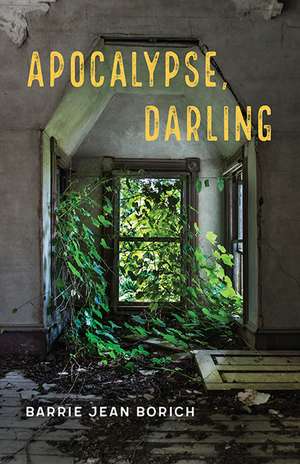










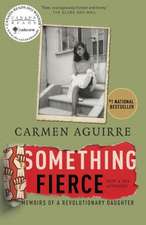



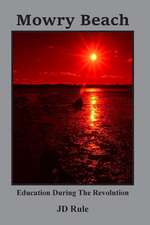
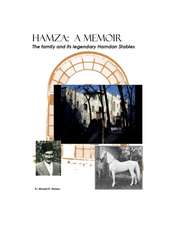
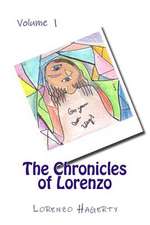
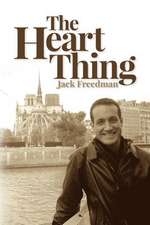
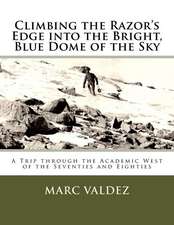
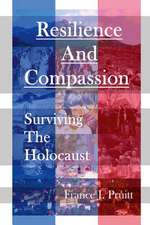
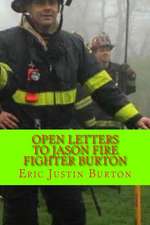
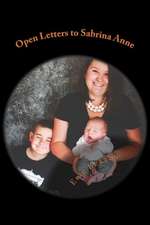
![You Don"t Know Jack [Chinese Translation]](https://i4.books-express.ro/bt/9781983409097/you-don-t-know-jack-chinese-translation.jpg)
